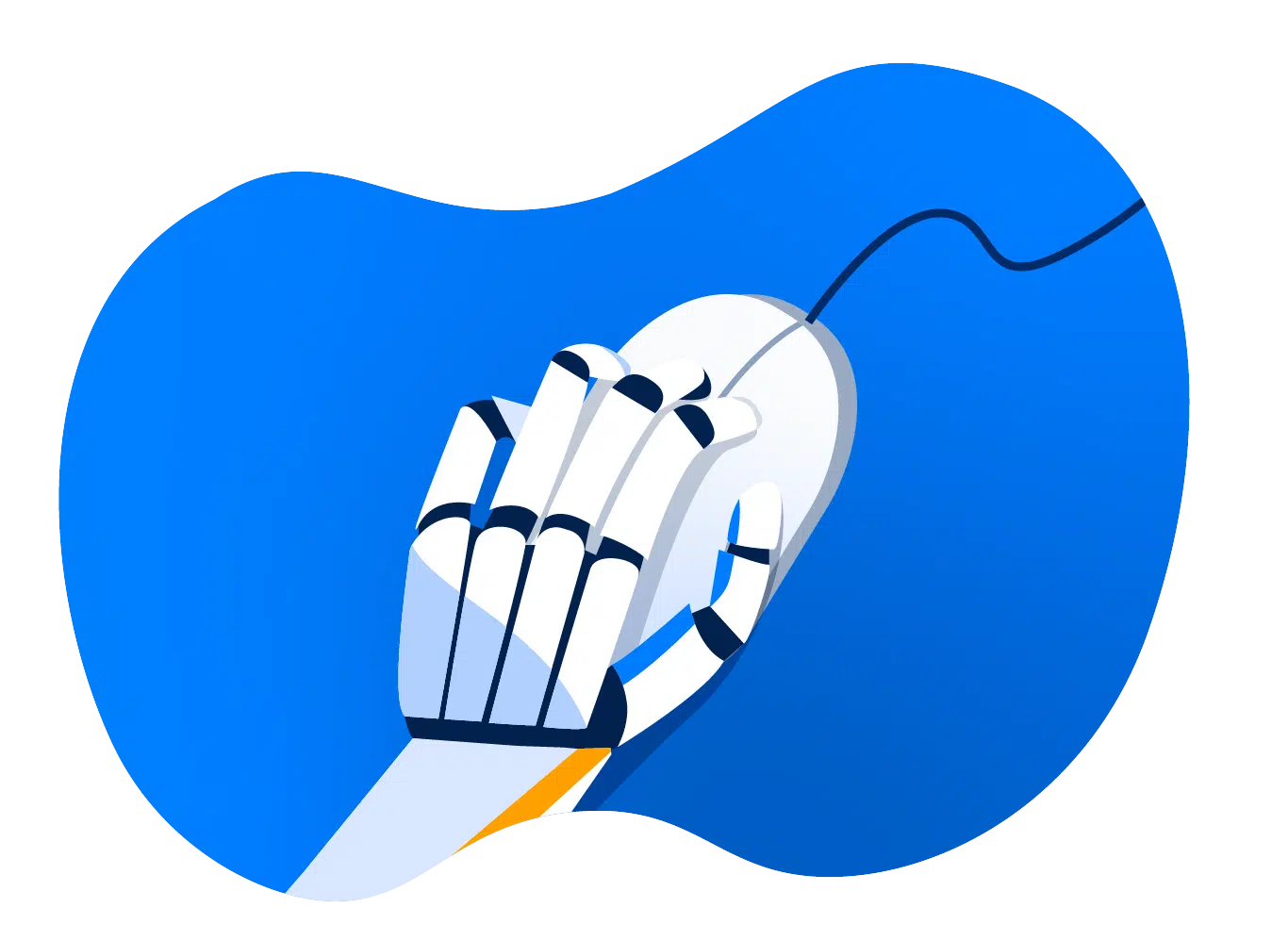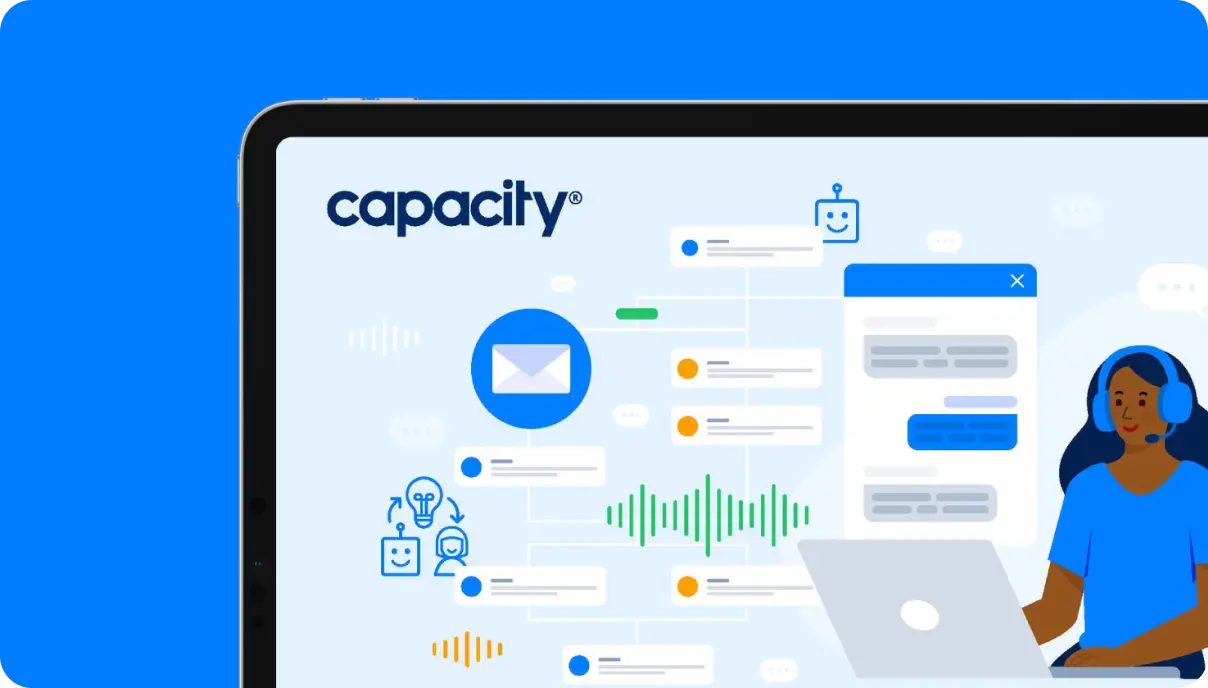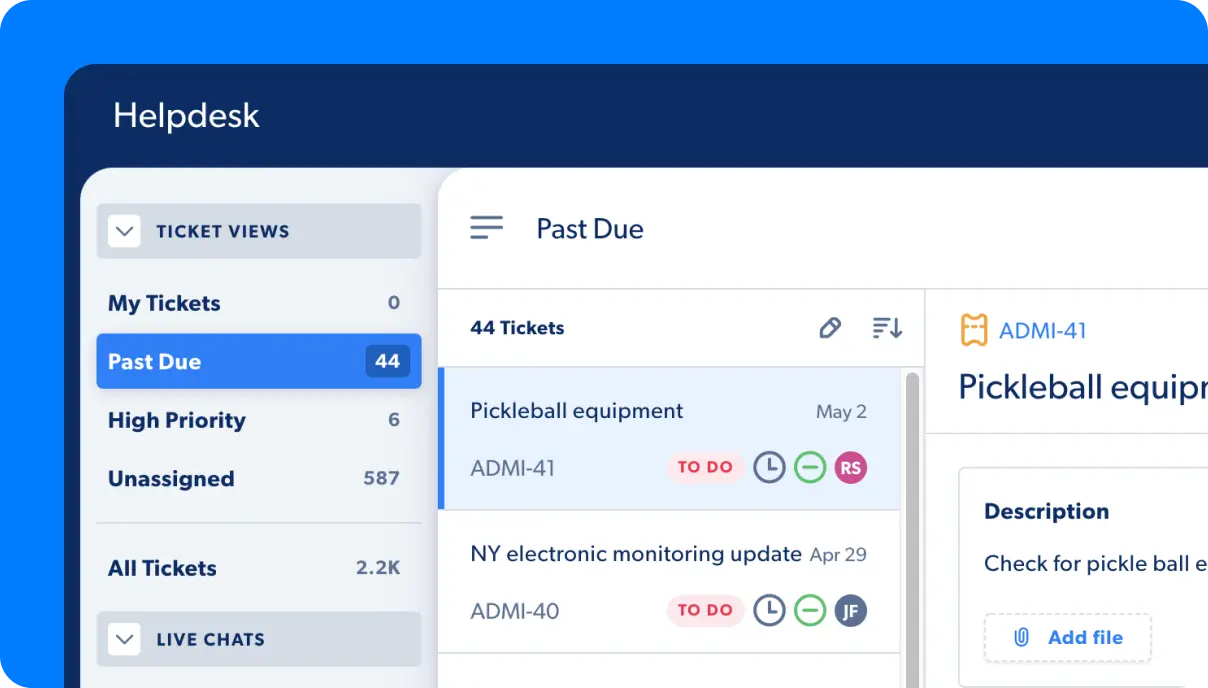Okay, okay. I know what you’re thinking. “Do we really need yet another piece telling us how to revolutionize our businesses?” Fair question, my skeptical friend. But let me ask you this: do you enjoy wasting time on hold? Sure the elevator music can be a little jazzy tune that makes you contemplate the meaning of life. But is it valuable? Is it helpful? Yeah, I didn’t think so.
In this era of instant gratification, where attention spans rival that of a caffeinated squirrel, you can’t afford to leave your customers hanging. They demand answers, solutions, and a sprinkle of delight, pronto! And that’s where our quirky friends, the chatbots, come strutting in. And they’re ready to handle all your customer interactions with flair.
But before we get all giddy about chatbots, let’s take a moment to appreciate the beauty of an omnichannel approach. Picture this: your customer starts a conversation on your website. Then, they hop over to Facebook Messenger to complain about your questionable office décor. And after that, they opt to slide into your DMs on Twitter for some good ol’ fashioned banter. An omnichannel chatbot strategy ensures that no matter where your customers choose to interact, the experience is seamless, consistent, and downright delightful.

Automate Your Work
Capacity’s enterprise AI chatbot can help:
- Answer FAQs anytime, anywhere
- Find relevant documents within seconds
- Give surveys and collect feedback
Now, I won’t lie to you. Adding an omnichannel chatbot strategy isn’t as simple as baking a cake. (Unless you’re a terrible baker—then, by all means, chatbots may be a piece of cake for you). It requires careful planning, a pinch of trial and error, and a dash of tech wizardry. But don’t worry, we’ll guide you through the labyrinth of chatbot creation. And we’ll help you unleash your inner genius (without losing your mind).
In this article, we’ll explore the undeniable benefits of omnichannel chatbots. And then we’ll equip you with the tools to kick-start your own bot revolution.
But be warned: once you dive into the world of chatbots, there’s no turning back. It’s like that addictive Netflix series you can’t stop watching. You know, the one that keeps you up until 3 a.m., begging for “just one more episode.” So buckle up, my friends, because we’re about to revolutionize your business, one witty bot at a time.

Omnichannel chatbots are intelligent bots that offer seamless customer support across several channels. This might include social media, messaging apps, email, and your website.
Using conversational AI and machine learning, these chatbots can understand and respond to user queries in a natural, human-like manner. This lets you give consistent and personalized support to your customers. And you can do so regardless of the platform they choose to engage with.
Omnichannel chatbots differ from traditional single-channel chatbots. They’re not limited to a specific communication channel. This lets you give customers a unified experience across all touchpoints. And that ultimately fosters brand loyalty and improves your customer satisfaction.
Implementing Omnichannel Chatbots: 6 Steps

Here are the 6 steps:
Step 1: Define your goals
Before adding an omnichannel chatbot, establish clear objectives. Figure out what your goal is. Are you trying to improve customer support? Maybe you’re looking to drive sales or streamline an internal process. Whatever the goal, define and document it.
Step 2: Choose the right channels
Figure out where your target audience usually communicates. Then, focus on these channels for your strategy. This ensures that your omnichannel chatbot is accessible and relevant to your customers.
Step 3: Create a conversation flow
Design a user-friendly conversation flow that guides users through the interaction process. This should include pre-defined responses, AI-generated answers, and escalation paths for complex queries.
Step 4: Train your chatbot
Use conversational AI to teach your chatbot how to understand and respond to users. You can do this by feeding your bot historical customer interaction data. And then add in knowledge about industry-specific terminology and common questions or concerns.
Step 5: Integrate with existing systems
Connect your omnichannel chatbots to your existing CRM, helpdesk, and automation tools. This lets it access relevant customer info and give personalized support.
Step 6: Measure and optimize
Continuously watch your chatbot’s performance to find areas for improvement. Use analytics and customer feedback to make data-driven decisions. And then fine-tune your chatbot’s conversational abilities.
Top Benefits of Omnichannel Chatbot

Here are the benefits:
Enhanced customer experience
Because your bot provides a consistent experience across channels, it affects your CX in the best of ways. And that, of course, then increases their satisfaction and loyalty.
Increased operational efficiency
Automating routine tasks and inquiries can free up your support team’s time. This lets them focus on more complex or high-value tasks.
Cost savings
Adding omnichannel chatbots can help reduce customer service costs. For instance, your bot can handle several queries without any human resources.
Improved response times
With an AI chatbot available 24/7, you can help your customers whenever they need it. This cuts down on wait times, hold times, and improves first contact resolutions.
Personalized support
Omnichannel chatbots give personalized support based on individual customer preferences and history. They use data from CRM and other integrated systems to make every interaction the best.
Scalable support
As your business grows, your bot can easily scale to accommodate. It can handle increased customer interaction volumes without compromising support quality.
Competitive advantage
By offering an advanced, seamless experience, you can set yourself apart from competitors. And you can position yourself as an industry leader.
How omnichannel chatbot benefits specific industries

Here are the benefits of Omnichannel for specific industries
Healthcare
- Improved patient support and communication. Chatbots can help patients schedule appointments. They can also help them find info about their medical conditions. Or, they can offer up personalized care recommendations.
- Appointment scheduling and reminders. Chatbots can assist with scheduling and confirming appointments and sending reminders to patients.
- Virtual triage. Chatbots can help direct patients to the appropriate level of care. For instance, if they need emergency services it can connect them. Or if they’re looking for primary care, it can do that, too.
E-commerce
- Personalized product recommendations. Chatbots can offer personalized recommendations based on a customer’s history and preferences.
- 24/7 customer service. Chatbots can handle customer inquiries anytime. This frees up your reps to handle more complex issues.
- Order tracking and status updates. Your omnichannel chatbots can give real-time updates on the status of an order. This reduces customer anxiety and just makes the shopping experience better.
Banking and finance
- Account management. Chatbots can help customers and members with simple tasks. This could be things like transferring funds and checking account balances. Or it can help them update personal information.
- Payment processing. Chatbots can help customers make payments and manage their financial transactions.
- Fraud prevention. Ah, my favorite. Omnichannel chatbots can detect and prevent fraudulent activity on customer accounts. They can flag anomalies or suspicious activity. And they can help boost the security and trust in your banking system.
Travel and hospitality
- Booking and reservation management. Omnichannel chatbots can help customers book travel and accommodations. And then, they can provide information about local attractions and events.
- Customer service. They can also handle specific inquiries related to travel. For instance, if there are flight delays or lost luggage.
- Personalized recommendations for travel plans. Chatbots can offer customized recommendations based on a customer’s travel history and preferences.
Education
- Student support. Chatbots can help students with enrollment, financial aid, and academic advising.
- Enrollment management. They can also help with enrollment, including submitting applications and tracking application status.
- Course information and scheduling. Chatbots can give students information about courses and scheduling. And they can help with registration and payment.
Omnichannel chatbot implementation challenges and solutions
Adding omnichannel chatbots can be a complex process. It requires careful planning, strategy, and execution. Here are some common challenges and potential solutions:
Technical hurdles
Integrating the chatbot with legacy systems and other software platforms can be challenging. So, choose a platform with pre-built integrations with other systems. Or work with a vendor that can provide custom integration solutions.
Privacy and security concerns
You HAVE to protect your customer data. So, verify your omnichannel chatbot platform meets industry data privacy and security standards. You’ll also want to check that it uses access controls and authentication measures.
Accuracy and reliability
Omnichannel chatbots should provide accurate and reliable information to build trust with users. Start regular testing and tracking of its performance. And continuously use machine learning to improve its accuracy and reliability.
Best Omnichannel Chatbot Companies

Here are the best omnichannel chatbot companies:
Capacity
Our platform is a low-code platform that uses conversational AI to automate support and business processes. It integrates with a ton of other tools like Slack, Teams, and your email. And it can help you create workflow automations and an AI knowledge base. It also lets your teams answer questions and automate repetitive tasks. In fact, we looked at the numbers yesterday. We’re deflecting 94% of repetitive interactions for our current customers. NINETY-FOUR PERCENT. Plus it’s customizable, so you can build solutions to any of your business challenges.
Key Features:
- All-in-one helpdesk for answering FAQs
- Low-code workflows for automating processes and tasks
- User-friendly knowledge base for empowering employees with information
- Suite of app integrations for accessing information from other tools
- Conversational interface for seamless interactions with the platform
With our AI-powered platform, you can streamline your support and business processes. And, you can reduce your support team’s queue and increase productivity.

Automate Your Work
Capacity’s enterprise AI chatbot can help:
- Answer FAQs anytime, anywhere
- Find relevant documents within seconds
- Give surveys and collect feedback
IBM Watson Assistant
IBM Watson Assistant is a highly customizable and scalable chatbot platform. It offers a range of capabilities for businesses. And it uses NLP, sentiment analysis, and personalized conversations. IBM Watson Assistant also provides integration with various other tools and platforms.
Key Features:
- Multilingual support
- Integration with IBM Cloud and IBM Watson Studio
- Customizable chatbot interface
- Automated conversation routing
- Voice-enabled chatbots
Salesforce Einstein Bot
Salesforce Einstein Bot offers a range of features like NLP, sentiment analysis, and personalized conversations. Plus it also integrates seamlessly with other Salesforce products, such as Salesforce CRM.
Key Features:
- Customizable chatbot interface
- Multilingual support
- Integration with Salesforce CRM
- Automated conversation routing
- Voice-enabled chatbots
LivePerson
LivePerson offers AI-powered chatbots, messaging, and customer engagement tools. And it also provides a range of features like personalized conversations, chatbot-to-human handoff, and real-time analytics.
Key Features:
- Customizable chatbot interface
- AI-powered chatbots
- Multilingual support
- Chatbot-to-human handoff
- Real-time analytics
Botpress
Botpress is an open-source chatbot platform. Like many of the others it uses NLP, sentiment analysis, and personalized conversations. And it also provides features like customizable chatbot interfaces, automated conversation routing, and integration with other tools.
Key Features:
- Open-source chatbot platform
- Natural language processing
- Sentiment analysis
- Customizable chatbot interface
- Integration with other tools
Dialogflow
Dialogflow provides a ton of features. Some include customizable chatbot interfaces, automated conversation routing, and integration with other tools.
Key Features:
- Natural language processing
- Sentiment analysis
- Customizable chatbot interface
- Integration with other tools
- Voice-enabled chatbots
Ready to see why +1200 customers choose Capacity? Try it now for free! Or schedule a demo.













































